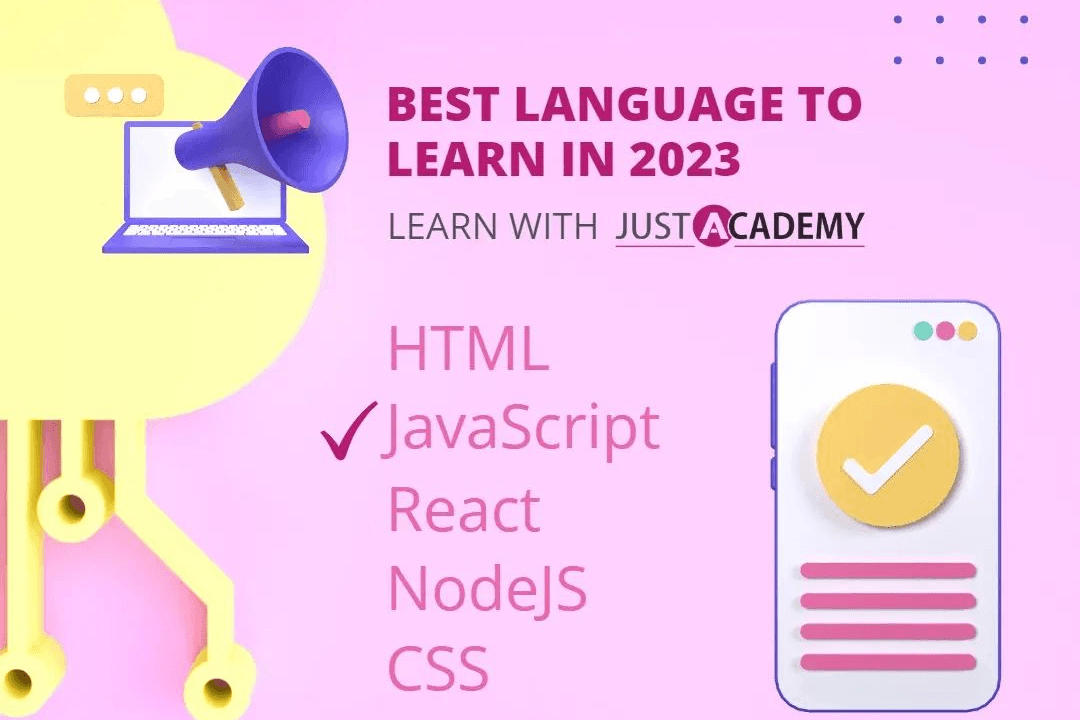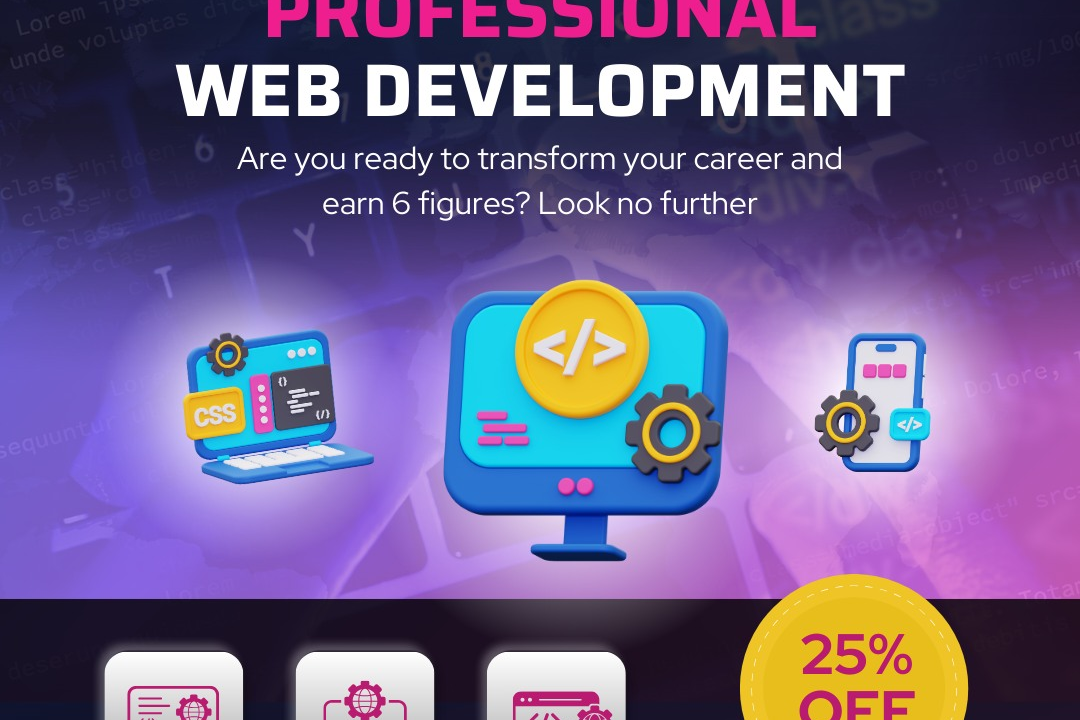Factorial Program In Php Without Loop
A recursive factorial program in PHP without loops is a method of calculating the factorial of a num
Factorial Program In Php Without Loop
A recursive factorial program in PHP without loops offers an elegant way to compute factorials by leveraging function calls that naturally break down the problem into smaller, manageable parts. This approach simplifies code readability and aligns well with mathematical definitions, making it particularly useful for educational purposes and for understanding recursion concepts. Without the need for iterative constructs, recursive functions can concisely represent factorial calculations for small to moderate inputs, making them an effective tool for demonstrating fundamental programming principles and fostering problem-solving skills.
To Download Our Brochure: https://www.justacademy.co/download-brochure-for-free
Message us for more information: +91 9987184296
A recursive factorial program in PHP without loops offers an elegant way to compute factorials by leveraging function calls that naturally break down the problem into smaller, manageable parts. This approach simplifies code readability and aligns well with mathematical definitions, making it particularly useful for educational purposes and for understanding recursion concepts. Without the need for iterative constructs, recursive functions can concisely represent factorial calculations for small to moderate inputs, making them an effective tool for demonstrating fundamental programming principles and fostering problem solving skills.
Course Overview
The “Factorial Program in PHP Without Loop” course provides a concise introduction to calculating factorials using recursion in PHP. It covers fundamental concepts of recursion, guiding learners through writing clean, loop-free code for factorial computation. Ideal for beginners, this course emphasizes understanding recursive functions, enhancing problem-solving skills, and applying recursive techniques to similar programming challenges effectively.
Course Description
Learn to compute factorials in PHP using recursion without loops, mastering recursive functions and enhancing your problem-solving skills efficiently.
Key Features
1 - Comprehensive Tool Coverage: Provides hands-on training with a range of industry-standard testing tools, including Selenium, JIRA, LoadRunner, and TestRail.
2) Practical Exercises: Features real-world exercises and case studies to apply tools in various testing scenarios.
3) Interactive Learning: Includes interactive sessions with industry experts for personalized feedback and guidance.
4) Detailed Tutorials: Offers extensive tutorials and documentation on tool functionalities and best practices.
5) Advanced Techniques: Covers both fundamental and advanced techniques for using testing tools effectively.
6) Data Visualization: Integrates tools for visualizing test metrics and results, enhancing data interpretation and decision-making.
7) Tool Integration: Teaches how to integrate testing tools into the software development lifecycle for streamlined workflows.
8) Project-Based Learning: Focuses on project-based learning to build practical skills and create a portfolio of completed tasks.
9) Career Support: Provides resources and support for applying learned skills to real-world job scenarios, including resume building and interview preparation.
10) Up-to-Date Content: Ensures that course materials reflect the latest industry standards and tool updates.
Benefits of taking our course
Functional Tools
1 - PHP Programming Language: PHP serves as the foundational tool for developing the factorial program without loops. It is a popular server side scripting language known for its simplicity and efficiency in creating dynamic web applications. PHP’s inherent support for recursive functions makes it ideal for implementing factorial calculations without iterative constructs. During the training, students learn how to write clean, optimized PHP code that demonstrates the power of recursion. The language also provides various debugging and testing tools that help students identify and fix errors effectively, fostering confidence in handling complex algorithms.
2) PHP IDEs (Integrated Development Environments): Tools like PHPStorm, Sublime Text, or Visual Studio Code are employed to write, edit, and manage PHP scripts efficiently. These IDEs offer features such as syntax highlighting, code completion, and error detection, making the development process smoother for students. During training, students familiarize themselves with these environments to write neat and error free code, which is essential for understanding recursive functions clearly. The IDEs also facilitate easy debugging with integrated tools, allowing students to step through their code, inspect variables, and understand the recursive call flow comprehensively.
3) XAMPP or WAMP Server: These are local server environments that provide Apache, MySQL, and PHP pre configured and ready to run on Windows or other platforms. They serve as testing grounds for students to execute their PHP scripts in a real server environment without the need for complex server setup. During the course, students learn how to configure and run PHP code locally, enabling practical experimentation with recursion and other programming concepts. These servers also help in understanding how server side processing works and allow students to test their programs in conditions similar to live servers, gaining realistic insights into deployment.
4) Web Browsers (Chrome, Firefox, Edge): Modern web browsers are used as the interface to run and view the output of PHP programs when integrated with local servers like XAMPP or WAMP. They serve as the primary tools to display results and debug output, which is crucial for visualizing recursive function outputs like factorial results. During training, students are trained to open PHP files through browsers, interpret the displayed outputs, and understand how server side code interacts with the client side. Browsers also assist in debugging by offering tools to inspect network requests and console logs, aiding in a deeper understanding of web server interactions.
5) PHP Debugging Tools: Tools such as Xdebug or built in features within IDEs are used to trace through recursive function calls step by step. These debugging tools help students visualize the call stack and understand how each recursive call progresses and unwinds. In the training program, students are guided on setting breakpoints, stepping through code, and monitoring variable states during recursion. This hands on debugging experience enhances their understanding of recursion mechanics and aids in identifying logical errors or infinite recursion pitfalls, thereby deepening their comprehension of PHP and recursion principles.
6) Online Resources and Documentation: PHP documentation, tutorials, forums, and example repositories play a vital role in self learning and troubleshooting during the course. These resources provide comprehensive explanations, code snippets, and community support, enabling students to explore various facets of recursion and PHP features. During training sessions, students are encouraged to consult official PHP manuals and online examples to reinforce their understanding. Access to these tools ensures they can find solutions quickly, enhance their problem solving skills, and stay updated with best practices in PHP programming and recursive algorithm implementation.
7) Version Control Systems (Git & GitHub/GitLab): Using version control systems allows students to track changes, manage different versions of their code, and collaborate with peers. During the course, learners are introduced to repositories where they can commit their recursive programs, review history, and revert to previous versions if needed. This cultivates good coding habits, ensures code safety, and prepares students for real world team projects involving PHP development.
8) Code Quality and Testing Tools: Incorporating static analyzers like PHPStan, Psalm, or PHPUnit helps students practice writing clean, maintainable, and bug free code. During the course, learners run tests to verify the correctness of their recursive factorial functions across various inputs, ensuring robust implementation. These tools promote best practices in coding standards, error detection, and automated testing, vital for professional PHP development.
9) Educational Platforms and Learning Management Systems (LMS): JustAcademy’s online learning portal hosts interactive tutorials, quizzes, assignments, and sample projects related to PHP recursion and factorial programs. These platforms enable students to learn at their own pace, receive instant feedback, and track their progress. The LMS facilitates structured learning, discussion forums, and instructor support, enhancing student engagement and understanding of recursive algorithms.
10) Visualization Tools: Graphical debuggers or flowchart tools help students visualize each step of the recursive factorial calculation. By illustrating call stacks, recursion trees, or step by step execution, these tools make abstract concepts more tangible. During training, students observe how recursive calls expand and contract, leading to better grasp of control flow and recursion depth management in PHP.
11 - Cloud based Development Environments: Platforms like AWS Cloud9 or GitHub Codespaces provide browser based development environments where students can write, run, and test PHP code without local setup. These environments support collaborative coding and instant deployment, fostering a seamless learning experience. In the course, students leverage these tools to practice recursion, share code snippets, and receive real time feedback from instructors or peers.
12) Learning Resources on Algorithm Analysis: Courses include materials on analyzing the time and space complexity of recursive functions, specifically factorial calculations. Through this, students learn to optimize recursive code, understand recursion limits, and avoid stack overflow errors. These insights are crucial for scalable PHP programming and efficient algorithm design.
13) Practical Implementation Guides and Sample Projects: JustAcademy provides step by step tutorials and complete source code for implementing recursive functions in PHP, including factorial programs. These guides serve as reference models for students, helping them understand best practices, code structure, and debugging techniques, solidifying their learning through hands on practice.
14) Certification and Assessment Tools: Automated assessments, quizzes, and coding challenges evaluate students’ understanding of recursion and PHP programming. These tools foster active learning by testing knowledge, providing instant feedback, and awarding certifications upon course completion. The recognition motivates learners to master recursive algorithms and develop professional PHP skills.
15) Community Support and Mentorship Programs: Students gain access to forums, discussion groups, and mentorship channels where they can ask questions, share experiences, and seek guidance on complex recursive programming challenges. This collaborative environment nurtures problem solving skills, peer learning, and confidence needed to tackle real world PHP projects involving recursion.
16) Code Optimization and Performance Monitoring Tools: Techniques and tools for profiling PHP scripts help students identify bottlenecks and optimize recursive functions for better performance. Training modules include best practices such as tail recursion optimization and minimizing recursion depth, essential for writing efficient PHP code that handles large factorial computations without excessive resource consumption.
17) Security and Best Practices Workshops: Educate students on writing secure PHP code by avoiding common pitfalls in recursive functions, such as infinite recursion vulnerabilities or resource exhaustion. Emphasis is placed on validating inputs and implementing safeguards, ensuring that recursive algorithms are safe to deploy in web applications.
These additional resources and tools equip students with a comprehensive setup for mastering recursive programming in PHP, aligning with JustAcademy's goal of delivering practical, industry ready certifications.
Browse our course links : https://www.justacademy.co/all-courses
To Join our FREE DEMO Session:
This information is sourced from JustAcademy
Contact Info:
Roshan Chaturvedi
Message us on Whatsapp: +91 9987184296
Email id: info@justacademy.co












